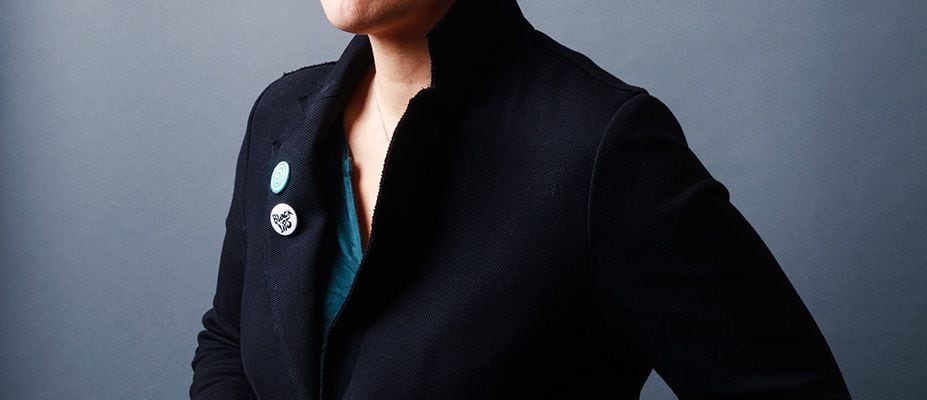We met and loved Marion Brunet for Circular Summergrand prize for detective literature 2018, then two years later with Vanda. There was great impatience to find her with Our weapons, published by Albin Michel. Not without a little fear: was there not a risk of disappointment in this story of a failed heist and the reunion of two friends twenty-five years later? It was forgetting that the Marseille novelist is not the type to give in to the easy way. Neither in his writing, which expresses the nuance of feelings so well, nor in his universe where every detail is weighed. His story, which one might believe to be plotted, happily dares to take side roads. With Nicolas Mathieu, she shares the same ability to grasp society. But if the 2018 Prix Goncourt is anchored in Epinal and in the world of work, Marion Brunet imbues her novels with the warmth of the South and focuses on the precarious, the marginalized.
Our weapons is a novel from the 1990s. Axelle and Mano are barely adults. The first judges her parents too narrow, her policeman father imposes his authority, her mother, submissive, quickly gave up her meager attempts at emancipation. The second comes from an ordinary family, so ordinary that she moves away from it to have the feeling of living. The story of Axelle and Mano is also that of their gang who ends up in squats, fights with the “fafs” outside a cinema and decides to rob the Municipal Credit Union. Tragic idea. A police officer is killed, Axelle falls for twenty-five years, Mano escapes but never stops waiting for her. Until the day a woman shows up in the village where she lives.
With its fragmented construction, using “I” and “you”, then an external narrator, juggling from one era to another, from one girl to another, Marion Brunet offers us much more than a social novel. Certainly, it tells of a universe that is turned upside down, the lost illusions and the bloody excesses of kids who, in the 1990s, wanted to change the world, believed they could do so and left their youth behind. No name, no geographical indication is given, but reading certain passages devoted to Axelle’s trial, one thinks of Florence Rey and Audry Maupin who, in 1994, robbed the Pantin prepound.
Marion Brunet has the talent to tell the times. There is music, the big fights, from Genoa in 2001 to Notre-Dame-des-Landes. We move from political violence against personalities to anti-globalization demands. Who still remembers that then, we took to the streets to denounce the coming to France of Silvio Berlusconi and the complacency of the French government towards him? His evocation of prison draws as close as possible to reality. “You will serve me one of those teas with a strange taste. I won’t like any of them. The Ricoré on my tongue has killed everything else, your hot waters will leave me with the feeling of being, forever, a prisoner”, said Axelle imagining its exit.
Dark novel full of nuances
The strength of the novelist is not to sacrifice her heroines to the message she wants to convey. Her living, oral language explores and digs into details to tell the story of the flaws that make people, women in particular, fragile. She is not content with white or black, but leaves each with its share of nuance and contradiction. After visiting her grandfather in prison, the only member of her family who still accepts her, Axelle finally allows herself to cry: “I held on while watching her broken figure leave the visiting room with small steps […] So I cried like the kid I was.” But on the next page, again, she becomes tough, facing her lawyer who asks her to say a word about this police officer she killed: “He It took me months to question my actions,” she admits.
Marion Brunet, known for her novels aimed at young people, had already explored these fragile women in her previous stories for adults. In Circular Summerit recounted the fate of two sisters aged 15 and 16 who dragged their boredom from their soulless housing estate into a funfair until the explosion of their family. Vanda, she lived in a cabin on the beach in Marseille with her son. Precarious conditions, but extreme love until the appearance of the child’s biological father who has the effect of an explosion. In a few lines, a few pages, Marion Brunet’s novels go from dark to the brightest light and back again. Not pure crime fiction, but somewhere in between No shelter, no law by Agnès Varda and Thelma and Louise by Ridley Scott.
Our weapons, by Marion Brunet, Albin Michel, 384 p., €20.90.
.
